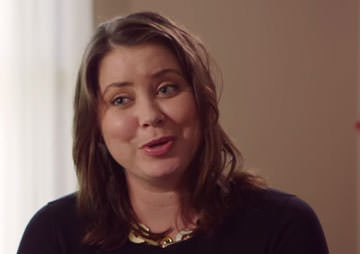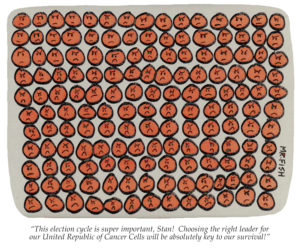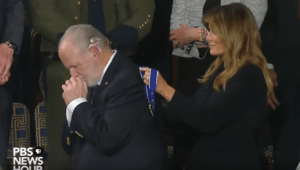Brittany Maynard: Choosing the Way a Life Ends
There is no way to hear Brittany Maynard's voice without being deeply touched.
There is no way to hear Brittany Maynard’s voice without being deeply touched. Tragically blindsided by brain cancer and a terminal diagnosis, Brittany has bravely decided to live large, to turn her terrible personal fate into a public story.
She has grabbed hold of the narrative written in her MRI and transformed her role from victim to crusader. The world now knows how she moved to Oregon where a doctor could prescribe the life-ending pills that sit in her purse. This runner and mountain climber talks about the emotional “comfort” the pills provide as she decides to pre-empt fate and declare victory over the dread of suffering.
Still, I’ve been uncomfortable watching this story go viral. In part, I fear that Brittany has become the latest pop-up tragedy. One week an ice bucket challenge for ALS, the next week a 29-year-old promising to pick her own death date for doctor-assisted suicide.
Such stories are often ranked by the numbers. Nearly 8 million “hits” for Brittany’s video. Thousands of “likes.” Dozens of television bookers fighting for her as their “get.” A death watch set up in the cool media glare of hot public attention.
But more importantly, the story of Brittany Maynard has momentarily turned a growing conversation about end-of-life care back into another battle over the contentious issue of assisted suicide. This is precisely the sort of debate we are famous for as a country — one that so often favors heat over light, the greatest controversy for the least effect.
Brittany’s decision to control the ending of her own life is the story of one in 500. Literally. Even in Oregon, where doctor-assisted suicide has been legal the longest, only one of every 500 people who die has chosen it. Why, I have wondered, should we continually engage our energies and our anger over a debate that affects 0.2 percent? What about the 99.8?
It has become so common to rush to the barricades, to head to the poles of every debate that we have forgotten what we agree on. Especially when it comes to the hard choices at the end of life.
If “one” seeks comfort in the pills in the purse or in the medicine cabinet, 499 want assurance they will die in a very different kind of comfort. If “one” needs to go to the trenches or the court to have his wishes respected at the end of life, 499 need to depend on their families and their care providers. If we see partisans fighting bitterly over ballot measures on legalizing doctor-assisted suicide, we see the majority of people agreeing that we need to change the way we are dying.
Last fall, The Conversation Project, which I helped found, did a survey showing that about 90 percent of Americans think it’s important to have conversations about how they want to live at the end of their days. This an extraordinary figure; 90 percent of Americans don’t agree on anything. But only about 30 percent have actually had those conversations. Isn’t this where we should begin?
A recent Institute of Medicine report on dying in America describes a health care system dismally failing us at the end. Too many people are not dying in the way they would choose. Too many survivors are left guilty, depressed and wondering whether they did the right thing. If assisted suicide were legal in every state, it would barely make a dent in that hard reality.
I know there are times when the best medicine may not relieve suffering. Brittany may be such a rare case. I fully respect her choice. But it is dangerous to think we can change a system by focusing on the “one.”
Change will come only when we close the gap, when our wishes are expressed and respected. I keep thinking about what Brittany said about life near the end. “Seize the day. What’s important to you? What do you care about? What matters? Pursue that.”
If all the people who watched her video want to do something that truly matters, start a conversation at the kitchen table with the people you love, people you may have to speak for. Find our Conversation Starter Kit — www.theconversationproject.org — if it helps you begin, but do begin. Talk about what matters to you at the end of life. Choose someone who will speak for you if you can’t speak for yourself. Have that conversation.
I am reminded of something else Britney said. “The thoughts that go through your mind when you find out you have so little time is everything that you need to say to everyone that you love.” Don’t let the moment pass.
Ellen Goodman’s email address is [email protected].
© 2014, Washington Post Writers Group
Your support matters…
Independent journalism is under threat and overshadowed by heavily funded mainstream media.
You can help level the playing field. Become a member.
Your tax-deductible contribution keeps us digging beneath the headlines to give you thought-provoking, investigative reporting and analysis that unearths what's really happening- without compromise.
Give today to support our courageous, independent journalists.






You need to be a supporter to comment.
There are currently no responses to this article.
Be the first to respond.